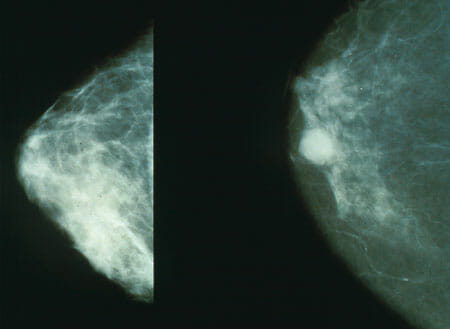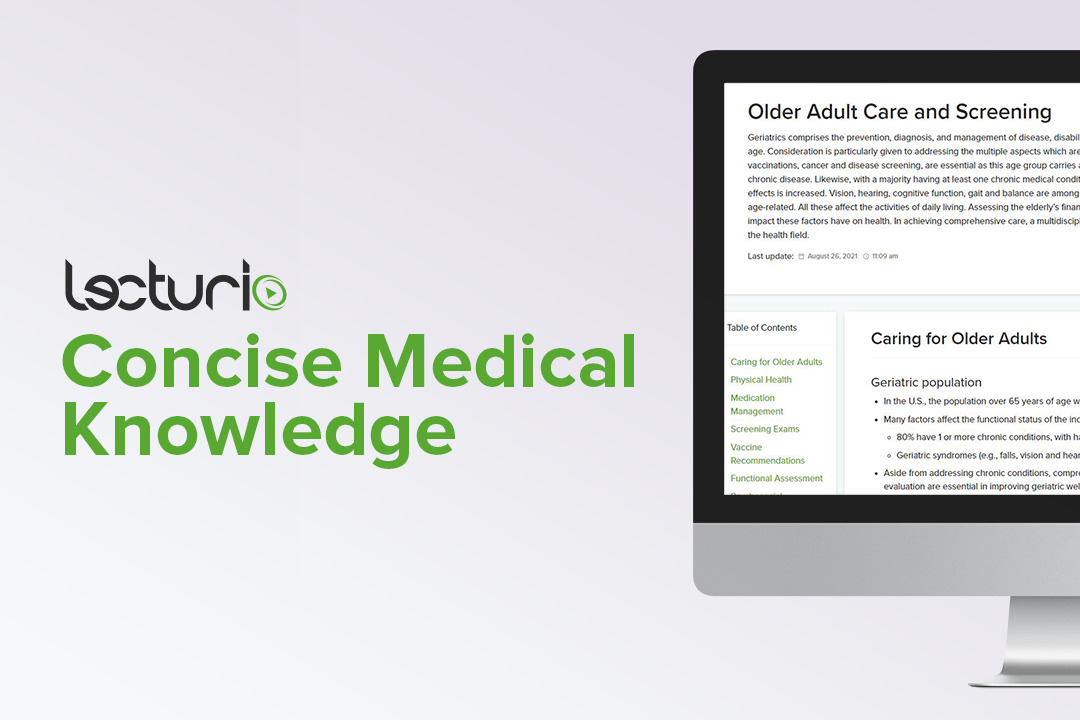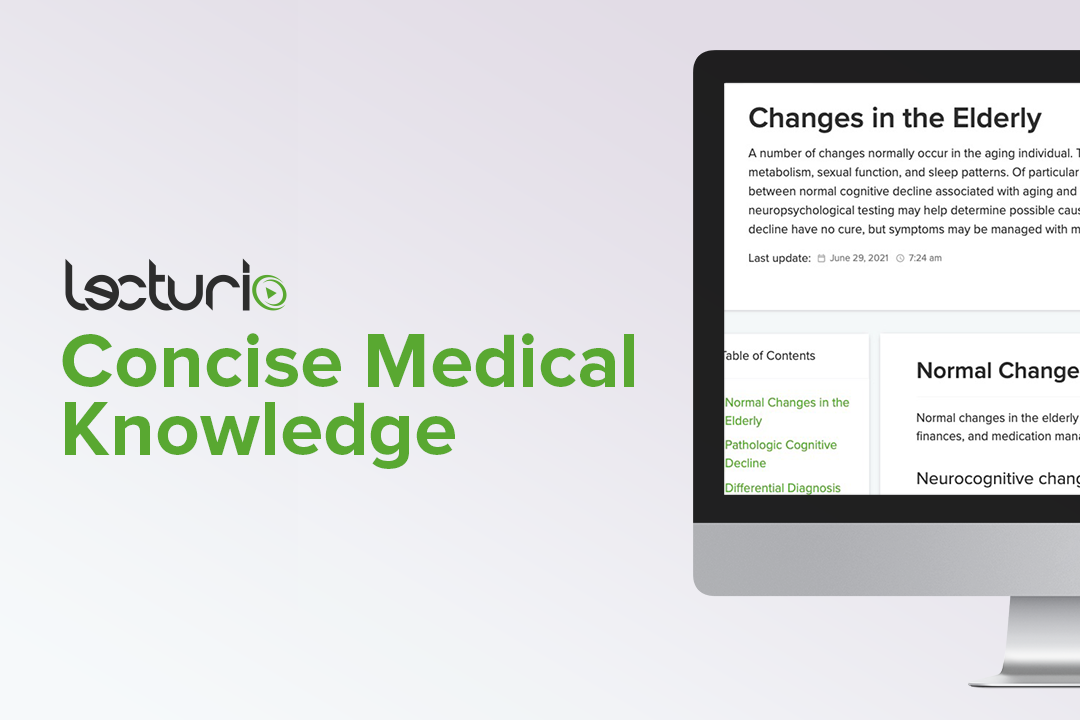Playlist
Show Playlist
Hide Playlist
Disorders and Treatment Considerations in Older Adults: Depression
-
Slides Geriatric Psychiatry.pdf
-
Download Lecture Overview
00:01 Let's consider the geriatric population now and psychiatry. 00:06 Medication is a very important topic to think about when we are talking about the elderly. 00:13 So you always want to try to subtract medications from your geriatric patient rather than adding medication on. This is a really important point and so I'm leading with it. 00:24 Be very careful about polypharmacy in the elderly individual. 00:29 But what is polypharmacy? Well, it's the use of 4 or more medications by a patient and it's most commonly occurring in the elderly. It affects about 40% of older adults and can lead to serious problems. Concerns about polypharmacy include increased adverse drug reactions. So the more medicines somebody's on, the more drug-to-drug interactions there gonna be, that are incredibly dangerous not to mention the side effects from the medication. Then there's this thing called the prescribing cascade, where in good faith, doctors will often tend to just keep adding a pill to treat a symptom but then a patient may get a side effect which requires another pill and so on and so forth and it's a terrible cascade that happens. 01:14 There's a lot of cause associated with prescribing multiple medications and it actually can lead to decreased quality of life for an individual, decreased mobility, decreased cognition and actually earlier mortality. 01:29 So the geriatric population is growing very fast in the United States and this group is just as susceptible to developing psychiatric disorders as anyone else. 01:41 Cognitive disorders and major depression are actually extremely common in the geriatric segment. 01:48 So when it comes to assessing an elderly patient, you wanna take the same approach as you do to other adults. Form a good therapeutic alliance, take a thorough history including a mental status exam and a very thorough medication list. Get collateral information. 02:07 Talk with the patient's children or their grandchildren. Call their previous providers whether it's a psychiatrist, therapist or primary care physician and do screening tests. 02:18 You wanna look into cognitive problems, depression, suicidal thoughts and also side effects to medication use. You also wanna be careful to check for abuse and neglect in this population. 02:31 Factors associated with normal aging include decreased muscle mass and increased fat, decreased brain weights, impaired vision and hearing and minor forgetfulness. 02:45 One problem for the elderly is that they're often confronted with mortality as they witness their friends dying and so it's pretty common for the elderly to go through grieving processes. Sometimes, more often than not. 03:01 So the stages of dying are as follows: First, there's denial, then anger, bargaining, depression and finally, acceptance. These are of course the stages of dying as defined by Kubler-Ross. 03:16 The stages of dying maybe experienced in any order and some of them can actually occur simultaneously, something to be aware of. 03:27 Another important point in the elderly is to consider depression. So we know they're prone to having depression. So let's define this again. Major depression is common in the elderly and they're actually twice as likely to commit suicide than the general population. 03:44 We see it in 15% of nursing home residents and symptoms include problems with memory and cognitive functioning. They can often be mistaken for dementia but of course, the correct term is actually pseudodementia which is major depression in an older person which presents looking like dementia. So patients may appear demented but in fact, you can treat the depression and thereby reverse their cognitive problems. 04:16 Depressed elderly patients will often present with physical symptoms such as stomach pain and memory loss. An important point to keep in mind. 04:29 When it comes to treating depression in the elderly, you wanna take a multimodal approach starting with therapy. 04:36 Be supportive and possibly also psychodynamic. Explore with that patient on a one-to-one basis. 04:43 Their fears, their hopes, and let them open up about what they're experiencing. 04:48 Now we wanna avoid polypharmacy in this population but you might consider treating with an antidepressant especially if the more non-invasive approach of therapy isn't quite helping enough. Antidepressant you might consider include SSRIs, MAOIs. 05:04 Here are some examples of SSRIs. You may also try tricyclic antidepressants or something like mirtazapine which is an atypical antidepressant but has a very nice side effect of actually enhancing sleep and also appetite which are often two things that the elderly people will struggle with during depressed times. 05:26 You might even consider a stimulant medication like methylphenidate. 05:30 This can often help to perk up the very depressed elderly patient and then other things you might consider are electroconvulsive therapy. 05:38 So we've talked about this in other lectures and in particular, you wanna consider electroconvulsive therapy or ECT in a geriatric person when they are really struggling such as not eating, not getting out of bed, becoming catatonic, maybe having some psychotic features or in the elderly person with intractable suicidal thoughts. Now, I did mention tricyclic antidepressants before. 06:06 They're an option but you wanna be very, very careful with them especially in the elderly because they do act at the muscarinic receptor causing stimulation and this can lead to sedation and more importantly can even lead to cardiac abnormalities which can cause big trouble for that patient. When it comes to bereavement, the elderly are as I said earlier more likely to experience losses of loved ones or friends and it's really, really important to distinguish normal grief reaction from depression. 06:42 So let's go through some of the criteria. So in normal grief, you'll see people have illusions maybe seeing the deceased every now and then, but they know that they're not really there. 06:53 They may attempt to resume their daily activities and work even if they're struggling through it. 06:59 They might feel a little bit guilty and sad for outliving their friend. 07:03 Some symptoms can resolve within about a year and there maybe some sleep disturbance. 07:09 All of these is pretty normal in the grieving process. 07:12 Now it becomes abnormal when symptoms persist for more than a year and the worse of the symptoms are persisting beyond 2 months. 07:22 Very severe symptoms that are actually impairing day to day function. 07:25 When the individual feels absolutely worthless, that's a very worrisome sign and there's significant sleep disturbance and weight loss, that's also very distressing and a sign for abnormal grief. Any hallucinations or delusions, so meaning that the patient is no longer reality testing and they're actually experiencing some psychotic symptoms. 07:50 That's abnormal grief and when the person is not even attempting to get back to their day to day life, that's also a very troubling sign and likewise any suicidal thoughts is a huge warning sign that this person is not just having normal grief but they may have enter a major depressive episode. Now, abnormal grief needs to be treated and usually that's done with a combination of psychotherapy and also psychopharmacology. 08:18 Another thing to be attuned to in the elderly is their sleep. 08:23 So the incidence of sleep disorders actually increases with aging. 08:27 Elderly people will often report difficulty sleeping, daytime drowsiness and often daytime napping. 08:34 Some of the causes for these are, them actually experiencing a general medical problem, environmental problems, too many medications and it could be just normal changes associated with aging. Side effects of sedative hypnotic drugs in the elderly are also really important to note and this is another reason why it's important to avoid too many medications. It can cause memory impairment, ataxia, paradoxical excitement or rebound insomnia. None of which are good. When it comes to treatment, benzodiazepines are another thing to look out for. So before ever adding a benzodiazepine to a sleep regimen or a treatment regimen at all, you want to be very careful in the elderly population. 09:22 These medications can only exacerbate problems cause addictions, disrupt sleep and increase the eldery's risk for falls. 09:32 Another important note to consider is elder abuse which unfortunately does happen and something you need to know about for your exam. So about 10% of people over 65 are potentially abused and this may be actually underreported number because the perpetrators usually a caregiver or a trusted family member or friend and usually doesn't go reported. So different types of abuse could be physical, sexual, psychological, verbal, neglect, exploitation or misuse of finances. 10:08 I wanna talk about a little bit more about treatment in the elderly and we're gonna explore each of these ideas a little bit further. 10:15 Restraint, medications, nursing homes and old age homes. 10:20 So when it comes to restraints, these are sometimes used in an agitated elderly patient and it's very unfortunate because it's quite dangerous. So restraints tend to be overused especially in nursing home settings and hospitals. When somebody is restrained, they're gonna suffer both physically and psychologically. It's a very scary experience. 10:42 So you wanna try to avoid restraints in the elderly and instead try alternatives like closer monitoring maybe one-to-one with the nurse or doing something like a tilted chair. 10:52 When it comes to medication, again avoid multiple medications. 10:57 Patient will only suffer side effects and drug-to-drug interactions. 11:02 Let's consider this case study now. Joan is an 85-year-old woman. 11:09 She comes to her PCP with the complaint of feeling tired and wants to know if there's a medication that could help perk her up. You perform a thorough history and a physical exam and you get some collateral information from her daughter. 11:22 So Joan takes over 25 different medications you learned for her multiple medical issues. 11:29 There are no general medical problems that you can think of that are making her so tired during the day and so you're thinking about doing something with her medication, but rather than adding a new medicine what might be more helpful? Of course, see if you could eliminate 1 or 2 medications from her list. 11:50 She's on polypharmacy already so maybe by taking a few off might go a long way and helping to perk her up. 11:57 In terms of nursing home treatment, these are places that provide care and rehab for the chronically ill and impaired patients as well as for short and long term care for people who just can't return to their prior living arrangements. About half of patients will stay on permanently once they go to a nursing home even if it's originally only intended for rehab needs. 12:19 So these are institutions where people can actually live out the rest of their lives. 12:25 Important to note and something that is occasionally thought of in care when the home living situation isn't appropriate for the patient. 12:35 So we've touched upon a few topics here having to do with the elderly. 12:41 So keep in mind that this is a topic that can come up in your exam and the key thing when you see an elderly patient is to make sure they're not on polypharmacy and also make sure that you're assessing them for the psychiatric disorders that anyone in the general population could absolutely be facing.
About the Lecture
The lecture Disorders and Treatment Considerations in Older Adults: Depression by Helen Farrell, MD is from the course Mild and Major Neurocognitive Disorders.
Included Quiz Questions
Which of the following is NOT a side effect of polypharmacy in the elderly?
- Increased tolerance
- Increased drug adverse effects
- Drug interactions
- Prescribing cascade
- Decreased cognition
Which of the following is NOT one of the stages of dying according to Kubler-Ross?
- Guilt
- Denial
- Depression
- Acceptance
- Bargaining
Which of the following statement is FALSE regarding major depression in the elderly?
- The elderly with depression are not as likely to commit suicide than the general population.
- Pseudodementia is the presence of apparent cognitive deficits in patients with major depression.
- Depressive symptoms are present in 15% of the nursing home residents.
- Depressive symptoms include problems with memory and cognitive functioning.
- Patients may appear demented; however, their symptoms are only secondary to their underlying depression.
Which of the following is used for treating severe cases of depression in the elderly?
- Electroconvulsive therapy
- Cognitive-behavioral therapy
- Minocycline
- Bromocriptine
- Diazepam
Why should amitriptyline be avoided in elderly patients?
- Cardiac abnormalities
- Respiratory failure
- Renal abnormalities
- Liver toxicity
- Cognitive disturbances
Which of the following distinctly differentiates normal grief from abnormal grief?
- Resolution of symptoms
- Sleep disturbances
- Weight loss
- Feelings of sadness
- Feelings of guilt
Which statement is TRUE regarding sleep disturbances in the elderly?
- The underlying cause can be medications, general medical conditions, or environmental changes.
- The incidence of sleep disorders decreases with age.
- Regular physical activity increases the incidence of sleep disturbances.
- The elderly have decreased daytime sleep with prolonged nighttime sleep.
- There is decreased daytime napping in the elderly.
Which of the following is NOT a side effect of sedative-hypnotic drugs in the elderly?
- Agitation
- Memory impairment
- Ataxia
- Paradoxical excitement
- Rebound insomnia
Which of the following statement about elder abuse is FALSE?
- It more commonly occurs in small towns as compared with the bigger cities.
- It occurs in 10% of all people over 65 years old.
- The perpetrator is usually a caregiver who lives with the victim.
- The abuse can include physical, sexual, and psychological.
- Neglect or misuse of finances is also considered abuse.
Customer reviews
5,0 of 5 stars
| 5 Stars |
|
5 |
| 4 Stars |
|
0 |
| 3 Stars |
|
0 |
| 2 Stars |
|
0 |
| 1 Star |
|
0 |






